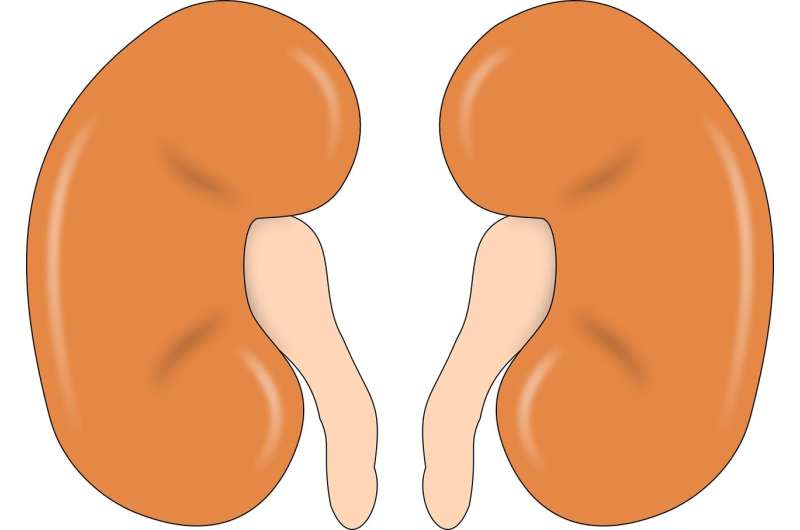Credit: CC0 Public Domain
A newly discovered blood marker may help physicians predict which patients who recently underwent kidney transplantation are at risk of experiencing organ rejection several years later. The findings appear in an upcoming issue of JASN.
Immunosuppressive medications are essential for keeping a kidney transplant recipient's immune system from attacking the transplanted organ, but in many cases, rejection eventually occurs. Predicting kidney transplant failure may help clinicians intervene before it's too late, but this requires a better understanding of individual patients' immune responses.
By analyzing blood samples from 284 kidney transplant recipients who were followed for a median of 8.3 years, a team led by Nicolas Degauque, Ph.D. (Université de Nantes and CHU Nantes, in France) found that the composition of immune cells called CD8+ memory T cells 1 year after kidney transplantation was linked with a patient's subsequent risk of kidney transplant failure. The investigators also found that specific CD8+ memory T cells called effector memory expressing CD45RA cells play a major role in initiating multiple immune-related processes that lead to kidney transplant failure.
"The identification of at-risk kidney transplants is based on clinical metrics already measured in the standard of care of patients and on the quantification of blood subsets of CD8+ cells that could be easily transferable in the routine monitoring of kidney transplant recipients," said Dr. Degauque. "The findings are important because early identification of at-risk kidney transplant recipients is critical to allow physicians to adapt their care by either increasing the frequency of patient monitoring or by introducing new therapeutics adapted to patients' own risks."
The results also indicate that effector memory expressing CD45RA cells may be promising targets for new treatment or prevention strategies against organ rejection.
More information: "TEMRA CD8 T Cells Identify Kidney Transplant Recipients at High Risk of Graft Failure," DOI: 10.1681/ASN.2019080847
Provided by American Society of Nephrology





















